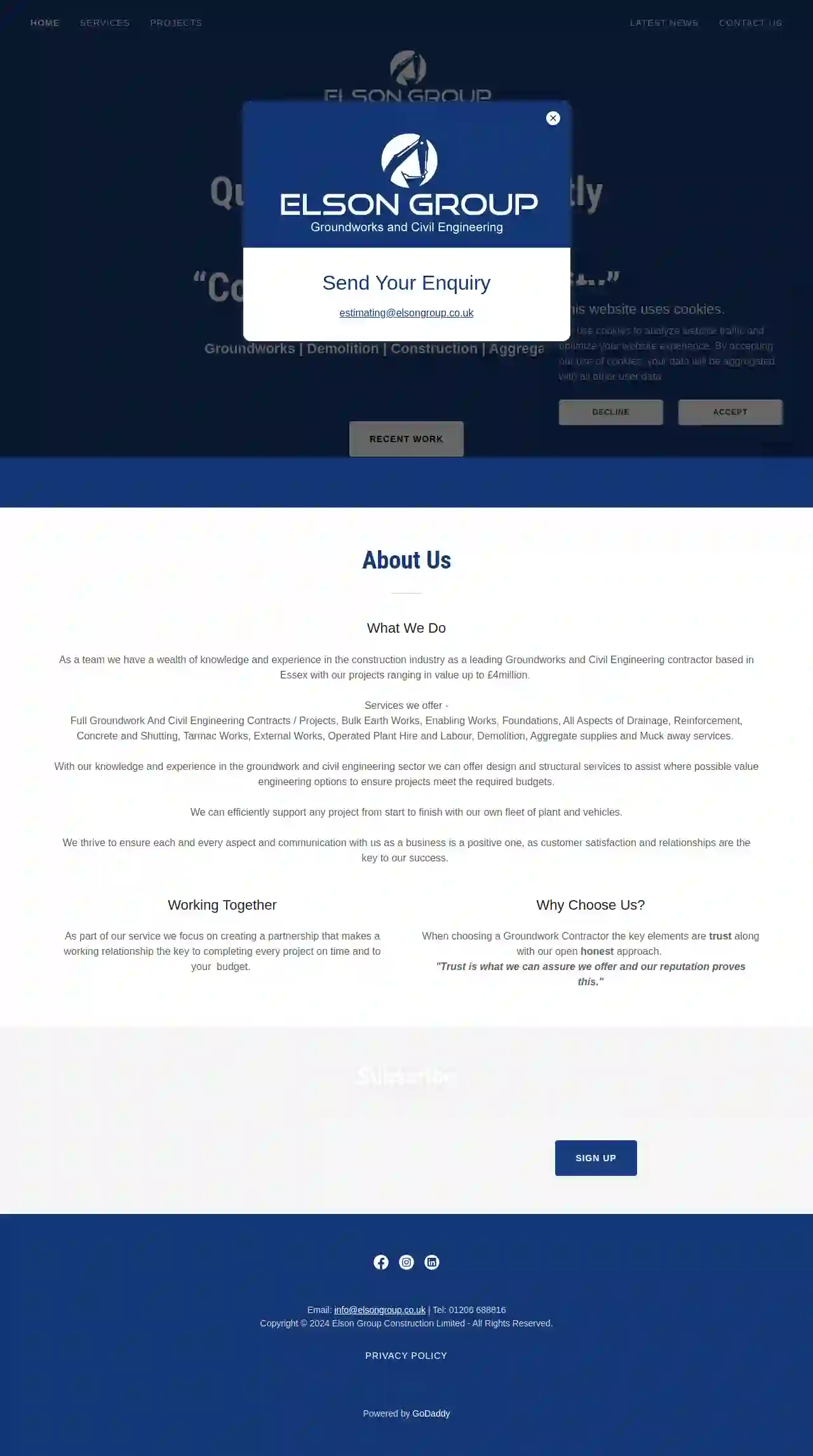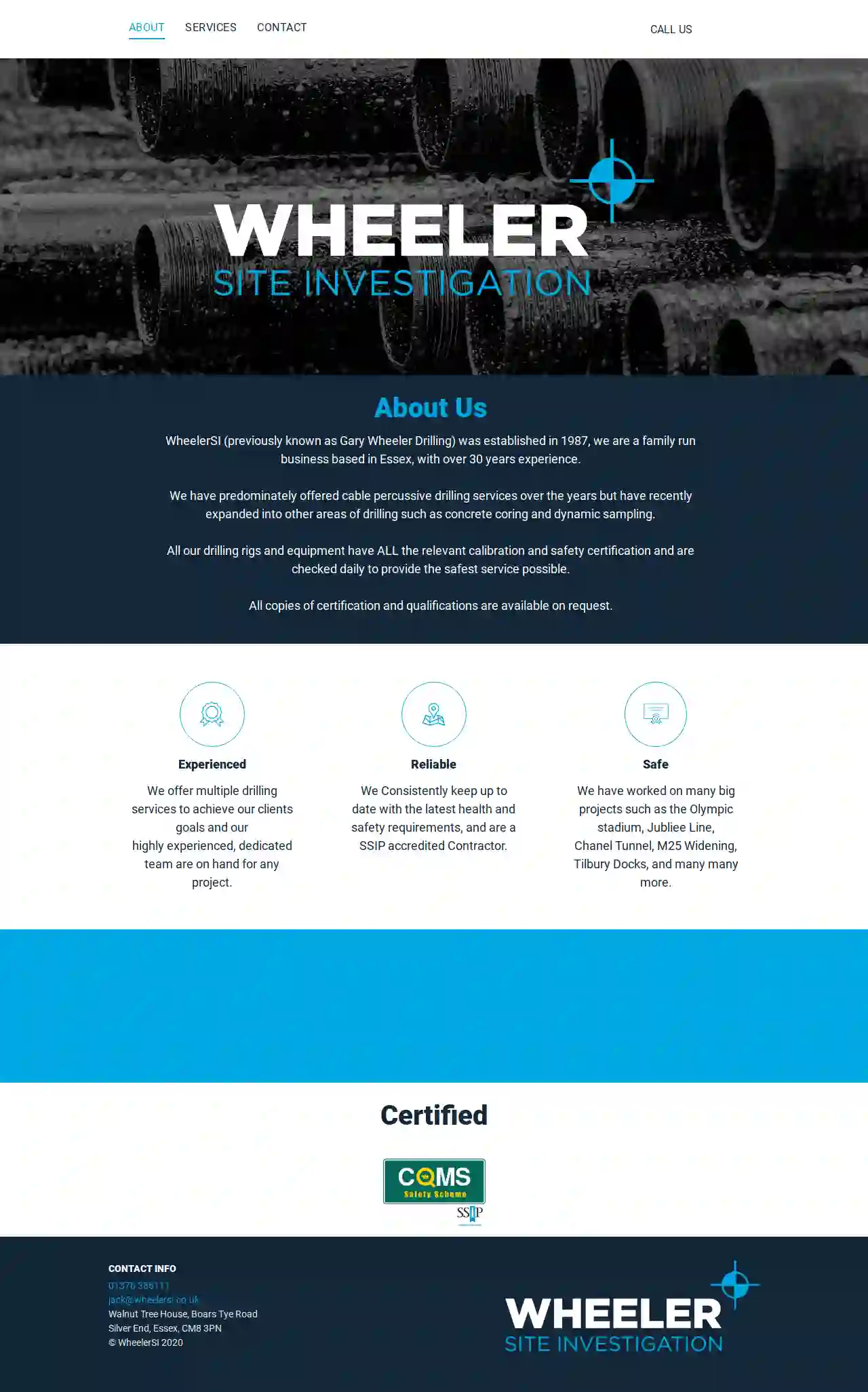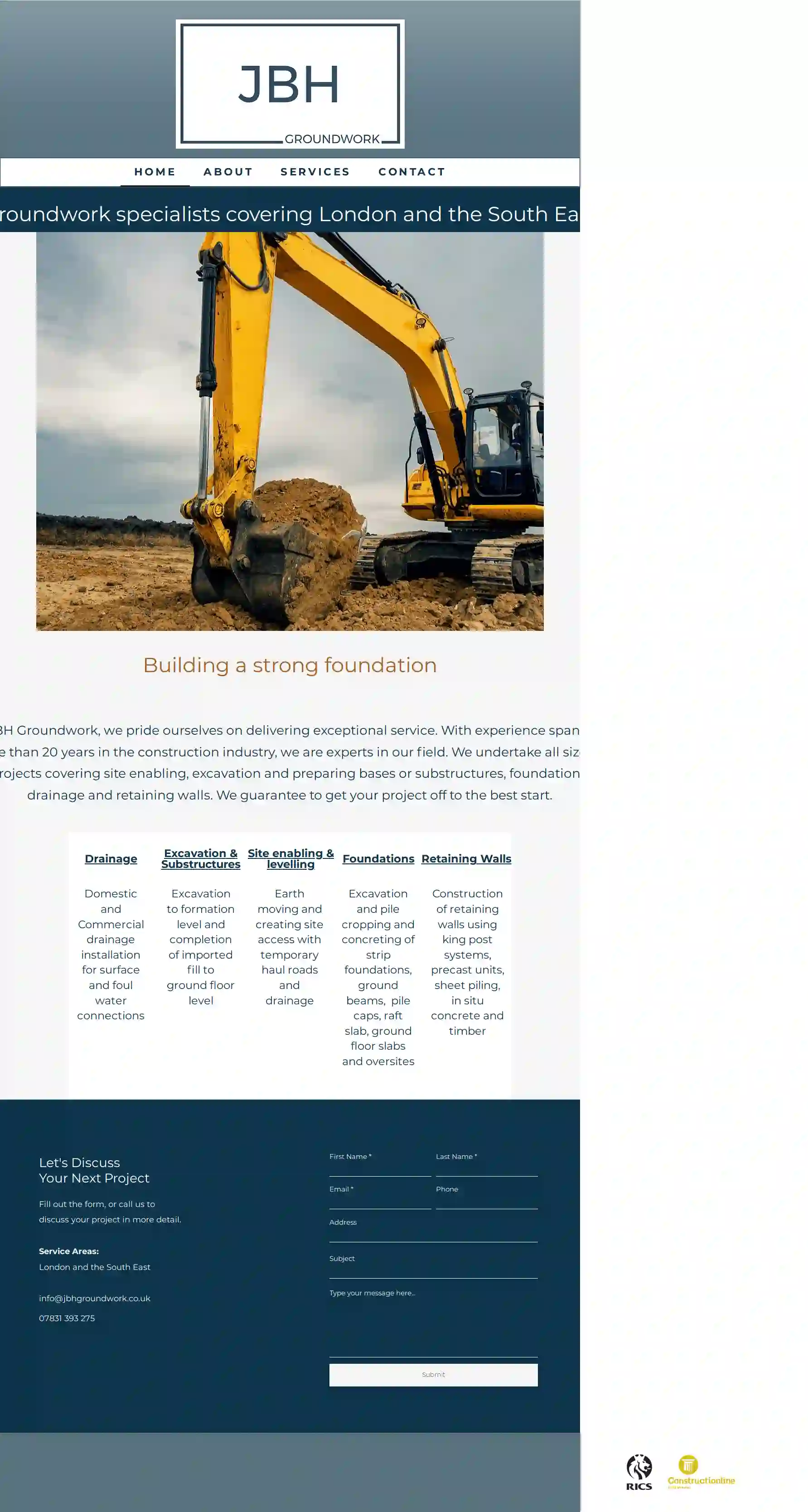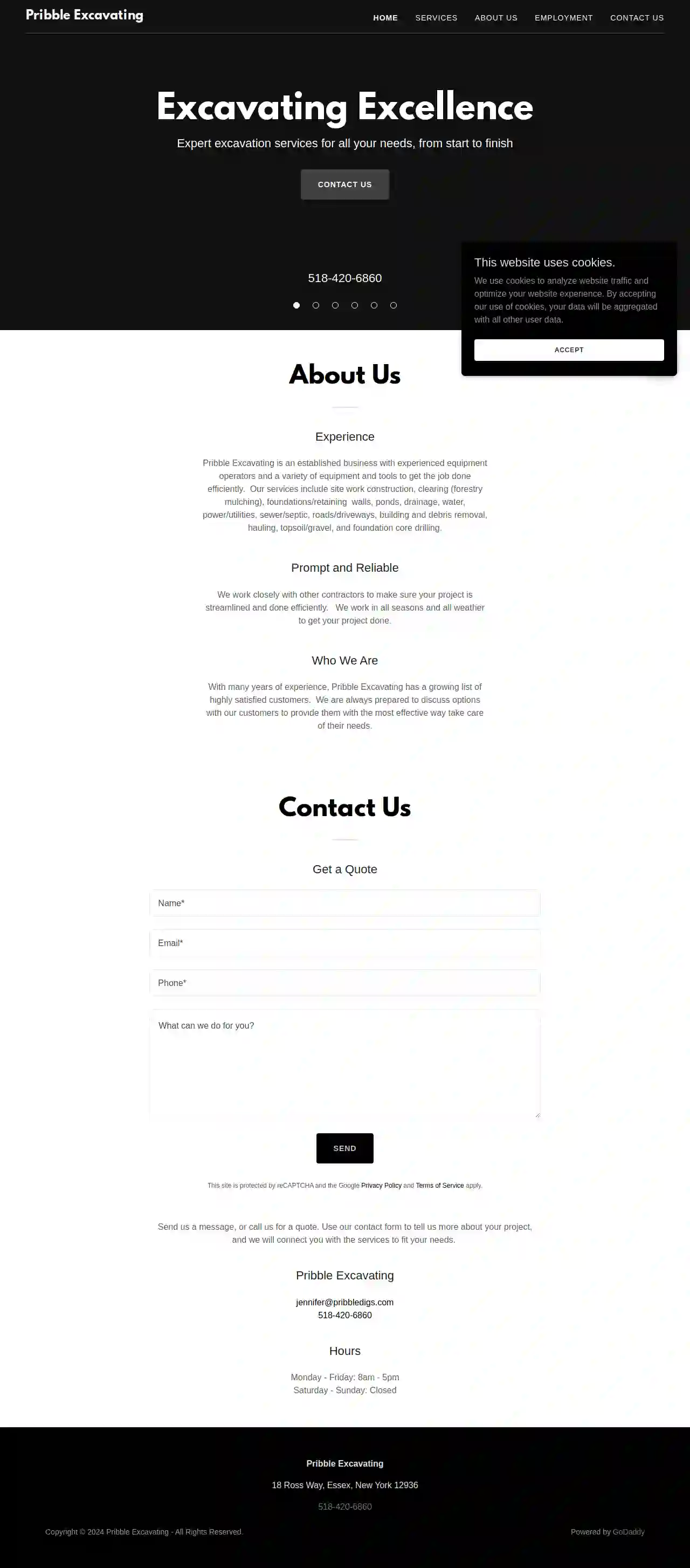Demolition Contractors Kelvedon
Best Demolition Services in Kelvedon
Get up to 3 Demolition Company Near Me quotes for your project today! Compare profiles, reviews, accreditations, portfolio, etc... and choose the best service.

Diamond Pave & Landscaping Ltd
56 reviewsPlot 1, 66 North Street, 66 North Street Rochford, Rochford, SS4 1AD, GBAbout Us Our company prides itself on a professional level approach and professional work ethic. Typical working days range from 7.30am-7.00pm. Diamond Pave was originally incorporated in 1988 and since then has grown to one of the largest block paving and landscaping companies in Essex. Read More Diamond Pave & Landscaping is a family-run business with over 30 years of experience in the landscaping industry. We are committed to providing our clients with the highest quality workmanship and customer service. We offer a wide range of services, including: Patio installations Driveway installations Landscaping Fencing Artificial grass installation Block paving We are fully insured and accredited, and we offer free quotes on all our services. We are also proud to be a member of the National Federation of Landscape Gardeners (N.F.L.G.). We are committed to providing our clients with a professional and reliable service. We are always happy to answer any questions you may have, and we are always available to discuss your project in detail. We are confident that we can provide you with the perfect solution for your landscaping needs.
- Services
- Why Us?
- Gallery
Get Quote
Elson group construction
51 reviews75 Springfield Road, Chelmsford, CM2 6JG, GBAbout Us As a team, we have a wealth of knowledge and experience in the construction industry as a leading Groundworks and Civil Engineering contractor based in Essex with our projects ranging in value up to £4million. What We Do Services we offer - Full Groundwork And Civil Engineering Contracts / Projects, Bulk Earth Works, Enabling Works, Foundations, All Aspects of Drainage, Reinforcement, Concrete and Shutting, Tarmac Works, External Works, Operated Plant Hire and Labour, Demolition, Aggregate supplies and Muck away services. With our knowledge and experience in the groundwork and civil engineering sector we can offer design and structural services to assist where possible value engineering options to ensure projects meet the required budgets. We can efficiently support any project from start to finish with our own fleet of plant and vehicles. We thrive to ensure each and every aspect and communication with us as a business is a positive one, as customer satisfaction and relationships are the key to our success. Working Together As part of our service, we focus on creating a partnership that makes a working relationship the key to completing every project on time and to your budget. Why Choose Us? When choosing a Groundwork Contractor the key elements are trust along with our open honest approach. "Trust is what we can assure we offer and our reputation proves this."
- Services
- Why Us?
- Gallery
Get Quote
DJB Build
510 reviews123 Main Street, Birmingham, B12 9AB, GBAbout DJB Build DJB Build is a family-run building company based in the heart of the UK. We have over 20 years of experience in the construction industry, providing a wide range of building services to both domestic and commercial clients. Our team of skilled and experienced builders are dedicated to delivering high-quality workmanship and exceptional customer service. We pride ourselves on our attention to detail, commitment to deadlines, and competitive pricing. Whether you're looking for a small renovation or a large-scale construction project, DJB Build is the company you can trust to get the job done right. We are committed to providing our clients with a stress-free and enjoyable building experience. We work closely with our clients throughout the entire project, ensuring that their needs and expectations are met. We are also fully insured and accredited, giving you peace of mind that your project is in safe hands.
- Services
- Why Us?
- Accreditations
- Our Team
- Testimonials
- Gallery
Get Quote
Cl Construction , builders & landscapers Colchester
54 reviewsColchester, GBDriven by a passion for innovation and a dedication to exceeding industry standards, CL Construction continues to redefine the construction & landscaping industry, setting new benchmarks for efficiency, reliability, and excellence within the sector. In today's challenging economic climate, CL Construction is committed to providing top-quality building services at prices that won't break the bank. We specialise in extensions, refurbishments, bathrooms, kitchens, groundworks, driveways, patios, and all aspects of landscaping. As your reliable, one-stop shop for all building needs, we keep everything under one umbrella combining expert craftsmanship with affordability. Our team is dedicated to delivering outstanding results that exceed expectations while maintaining budget-friendly rates. Choose CL Construction for a seamless, stress-free experience and turn your vision into reality. Contact us today to discuss your project.
- Services
- Why Us?
- Testimonials
- Gallery
Get Quote
Wheeler Site Investigation
Walnut Tree House, Boars Tye Road, Silver End, CM8 3PN, GBAbout WheelerSI WheelerSI (previously known as Gary Wheeler Drilling) was established in 1987. We are a family-run business based in Essex, with over 30 years of experience. We have predominantly offered cable percussive drilling services over the years but have recently expanded into other areas of drilling such as concrete coring and dynamic sampling. Our Commitment to Safety All our drilling rigs and equipment have all the relevant calibration and safety certification and are checked daily to provide the safest service possible. All copies of certification and qualifications are available on request. Experienced and Reliable We offer multiple drilling services to achieve our clients' goals, and our highly experienced, dedicated team are on hand for any project. We consistently keep up to date with the latest health and safety requirements and are a SSIP accredited Contractor. A Proven Track Record We have worked on many big projects such as the Olympic stadium, Jubilee Line, Channel Tunnel, M25 Widening, Tilbury Docks, and many more.
- Services
- Why Us?
- Gallery
Get Quote
TLC Building Services
12 reviewsSuite 28 Colchester Business centre, Colchester, Essex, CO1 2JS, GBTLC Home Group is a family-run business with extensive experience in delivering high-quality Renewables and construction projects, from single new build homes and extensions to multi-million pound conversions of commercial buildings. We are committed to harnessing the power of renewable energy to create a greener, more sustainable future. Our business started up in Colchester and has expanded to serve areas across Essex, Suffolk and London. Explore our diverse portfolio and services that makes our trusted family-run business proud to say we're large enough to trust, but small enough to care. We are committed to providing the highest standard at affordable prices. We love sharing ideas at TLC Home Group and are keen to hear your vision for your property. Get in touch by filling out the form, contacting the details on this page or making an appointment to see us in our Ipswich offices. TLC is also able to arrange a viewing of one of our many ongoing projects. Please get in touch with your details and we will find what build best addresses your situation.
- Services
- Why Us?
- Gallery
Get Quote
JBH Groundwork
Loughton, GBBuilding a strong foundation At JBH Groundwork, we pride ourselves on delivering exceptional service. With experience spanning more than 20 years in the construction industry, we are experts in our field. We undertake all sizes of projects covering site enabling, excavation and preparing bases or substructures, foundations, drainage and retaining walls. We guarantee to get your project off to the best start.
- Services
- Why Us?
- Gallery
Get Quote
Chelmsford Demo Ltd
55 reviewsChelmsford, GBWho Are We? Established in 2022, we are a versatile and innovative demolition company that can operate as a Principal Contractor or Demolition Subcontractor. Our management has combined experience of over 30 years in the demolition and construction industry and is trained to NVQ level 6 in demolition project management. Our core business is mechanical demolition covering all sectors including industrial dilapidated warehouses, commercial cut and carve to simple residential dwellings. In addition, we cover strip outs, asbestos abatement including surveys, removal and disposal, site clearance, asset recovery and recycling. Accredited with Constructionline Gold, SSIP & Acclaim we can demonstrate safe compliance in collaboration with our industry-specific Health and safety consultants to ensure that projects are delivered safely and diligently. With combined experience and qualifications, we provide cost and programme-effective demolition solutions tailored to suit client’s needs. Local Business Based in Chelmsford, Essex allows us to be an ideal choice for your needs. Services Our services include Asbestos surveys, Strip out, alterations, temporary works and more.
- Services
- Why Us?
- Accreditations
- Testimonials
- Gallery
Get Quote
Marney Construction Ltd
52 reviewsApthorpe, St Johns Drive, Rayleigh, Essex, SS6 9EU, GBAbout Marney Construction Marney Construction Ltd was formed by Neil Marney, Director of Marney Reinforcement Ltd, in 2006. Since then, we've grown in stature and reputation, completing some very prestigious contracts. The capability and knowledge gained over the past 12 years has given Marney Construction an enviable reputation, showcasing our diverse areas of expertise in construction. We strive to provide our clients with an all-encompassing service, alleviating the commercial headache of having multiple trades conflicting at site level. With a total of 20 years in business, we are more than capable at any level. Marney Construction has grown steadily over the past 12 years and has recruited some of the top tier professionals within its field. Now, as an experienced and trusted supplier, we are able to offer a reliable, innovative and cost-effective service to all our clients. We are proud of our highly-trained and dedicated design engineers and installation teams, as well as our vigorous health and safety standards and environmental practices. This means our work is carried out to the highest levels of workmanship while having minimal impact on the local surroundings and businesses. Client relationships are paramount to us, and we pride ourselves on offering a second-to-none level of customer service with a can-do, non-contractory approach. Today, rest assured, you are in safe hands with Marney Construction Ltd. We can offer the complete solution to all your project requirements.
- Services
- Why Us?
- Testimonials
- Gallery
Get Quote
Pribble Excavating
51 reviews18 Ross Road, Essex, 12936, GBExperience Pribble Excavating is an established business with experienced equipment operators and a variety of equipment and tools to get the job done efficiently. Our services include site work construction, clearing (forestry mulching), foundations/retaining walls, ponds, drainage, water, power/utilities, sewer/septic, roads/driveways, building and debris removal, hauling, topsoil/gravel, and foundation core drilling. Prompt and Reliable We work closely with other contractors to make sure your project is streamlined and done efficiently. We work in all seasons and all weather to get your project done. Who We Are With many years of experience, Pribble Excavating has a growing list of highly satisfied customers. We are always prepared to discuss options with our customers to provide them with the most effective way to take care of their needs.
- Services
- Why Us?
- Gallery
Get Quote
Over 13,059+ Excavation Pros in our network
Our excavation pros operate in Kelvedon and beyond!
ExcavationHQ has curated and vetted the Best Excavation Businesses near Kelvedon. Find the most trustworthy contractor today.
Frequently Asked Questions About Demolition Contractors
- Site Security: Secure the demolition site with fencing and warning signs to prevent unauthorized access.
- Personal Protective Equipment (PPE): Workers should wear appropriate PPE, including hard hats, safety glasses, gloves, and steel-toe boots.
- Hazardous Material Removal: Properly identify and remove asbestos, lead paint, or other hazardous materials before demolition begins.
- Utility Disconnections: Disconnect all utilities, such as electricity, gas, and water, before demolition.
- Controlled Demolition Techniques: Employ controlled demolition methods to minimize risks and ensure the structure comes down safely.
- Dust Control: Implement dust suppression measures, such as water spraying or misting, to reduce airborne particles and protect air quality.
- Emergency Planning: Have an emergency plan in place, including communication protocols and evacuation procedures, in case of unforeseen events.
- Feasibility Studies: Assessing the viability and challenges of a demolition project.
- Demolition Planning: Developing demolition plans, including method selection, sequencing, and safety procedures.
- Permitting Assistance: Navigating the demolition permitting process and ensuring compliance with regulations.
- Hazardous Material Surveys: Identifying and managing hazardous materials, such as asbestos and lead paint.
- Cost Estimating: Providing accurate cost estimates for demolition services.
- Project Management: Overseeing the demolition process and ensuring it proceeds as planned.
- Size and Type of Structure: The method should be suitable for the structure's size, height, and construction materials.
- Site Location and Accessibility: The method should be feasible given the site's location, surrounding buildings, and access constraints.
- Environmental Considerations: Prioritize methods that minimize environmental impact, such as deconstruction or selective demolition if feasible.
- Budget: Different demolition methods have varying costs, so choose one that fits your budget.
- Safety: Prioritize methods that ensure worker safety and minimize risks to surrounding areas.
What are the safety precautions for demolition?
What is asbestos abatement?
What is the role of a demolition consultant?
How do I choose the right demolition method for my project?
What are the safety precautions for demolition?
- Site Security: Secure the demolition site with fencing and warning signs to prevent unauthorized access.
- Personal Protective Equipment (PPE): Workers should wear appropriate PPE, including hard hats, safety glasses, gloves, and steel-toe boots.
- Hazardous Material Removal: Properly identify and remove asbestos, lead paint, or other hazardous materials before demolition begins.
- Utility Disconnections: Disconnect all utilities, such as electricity, gas, and water, before demolition.
- Controlled Demolition Techniques: Employ controlled demolition methods to minimize risks and ensure the structure comes down safely.
- Dust Control: Implement dust suppression measures, such as water spraying or misting, to reduce airborne particles and protect air quality.
- Emergency Planning: Have an emergency plan in place, including communication protocols and evacuation procedures, in case of unforeseen events.
What is asbestos abatement?
What is the role of a demolition consultant?
- Feasibility Studies: Assessing the viability and challenges of a demolition project.
- Demolition Planning: Developing demolition plans, including method selection, sequencing, and safety procedures.
- Permitting Assistance: Navigating the demolition permitting process and ensuring compliance with regulations.
- Hazardous Material Surveys: Identifying and managing hazardous materials, such as asbestos and lead paint.
- Cost Estimating: Providing accurate cost estimates for demolition services.
- Project Management: Overseeing the demolition process and ensuring it proceeds as planned.
How do I choose the right demolition method for my project?
- Size and Type of Structure: The method should be suitable for the structure's size, height, and construction materials.
- Site Location and Accessibility: The method should be feasible given the site's location, surrounding buildings, and access constraints.
- Environmental Considerations: Prioritize methods that minimize environmental impact, such as deconstruction or selective demolition if feasible.
- Budget: Different demolition methods have varying costs, so choose one that fits your budget.
- Safety: Prioritize methods that ensure worker safety and minimize risks to surrounding areas.